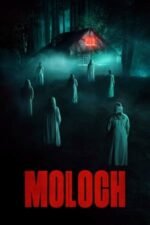Beyond Tulips & Windmills: Exploring the Cinematic Soul of the Netherlands
Okay, so when you think "Netherlands," what pops into your head? Probably windmills, tulips, maybe some clogs. And while those are certainly part of the picture, Dutch cinema offers so much more – a fascinating blend of social commentary, thrilling suspense, and surprisingly dark humor that often gets overlooked. It's a country with a rich history, a complex relationship with its past (particularly World War II), and a unique cultural identity that filmmakers have been exploring for decades.
What’s striking about Dutch cinema is how it tackles big themes – societal change, personal responsibility, the search for truth – often through unconventional narratives and characters you won't find in Hollywood blockbusters. Take A Noble Intention, for example. It’s a historical drama set in 1888 Amsterdam, but it isn’t just about pretty costumes and cobblestone streets. It uses the backdrop of urban development and burgeoning industry to examine ambition, deception, and the moral compromises people make when chasing a better life. That tension between aspiration and consequence is something you see recurring throughout Dutch film.
Then there's the sheer grit that some films possess. Rough Cut, a heist thriller, isn’t your typical glamorous jewel robbery flick. It feels grounded, almost claustrophobic at times, with a raw energy that makes the stakes feel incredibly real. And it showcases Amsterdam – not as a postcard-perfect tourist destination, but as a city of shadows and hidden corners. Similarly, Nothing to Lose plunges you into a psychological labyrinth of doubt and guilt, questioning everything you think you know about justice and memory. It’s unsettling, challenging, and utterly compelling.
Even lighter fare like Waiter, while dealing with everyday frustrations – noisy neighbors! – uses surreal elements (the protagonist literally seeking out his creator) to explore deeper anxieties about connection and control. And let's not forget the darkly comedic brilliance of The Northerners. It’s a film that dares to poke fun at societal repression and unfulfilled desires, offering a surprisingly insightful look at a community grappling with change in the 1960s. It reminded me a bit of early Mike Leigh – uncomfortable truths wrapped in wry humor.
And finally, Beauty of Life offers a more contemporary perspective, showing how universal themes of belonging and connection play out for international students navigating a new culture. It's a gentle reminder that finding your place is often a messy, complicated process, no matter where you come from.
So, next time you’re looking for something beyond the usual cinematic fare, I highly encourage you to dive into Dutch cinema. You might be surprised by what you find – a world of compelling stories, complex characters, and a distinctly European perspective that will stay with you long after the credits roll.




































